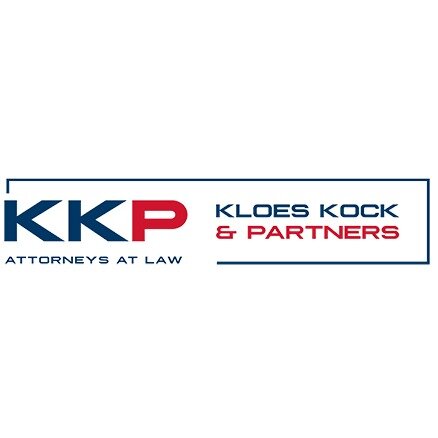Best Acquisition / Leveraged Finance Lawyers in Aruba
Share your needs with us, get contacted by law firms.
Free. Takes 2 min.
Or refine your search by selecting a city:
List of the best lawyers in Aruba
About Acquisition / Leveraged Finance Law in Aruba
Acquisition and leveraged finance law in Aruba encompasses the set of legal principles and regulations that govern the financing of company acquisitions, often through the use of significant amounts of borrowed money. These transactions typically involve various parties such as banks, private equity investors, and corporations and are subject to local as well as international financial regulations. Aruba, as a constituent country within the Kingdom of the Netherlands, has a legal system based on Dutch civil law, which means that its acquisition and finance rules share similarities with European practice but are adapted for its unique business environment. The island’s stable political climate, business-friendly policies, and a well-regulated financial sector make Aruba an attractive jurisdiction for mergers, acquisitions, and leveraged buyouts.
Why You May Need a Lawyer
Legal assistance is crucial in acquisition and leveraged finance transactions due to the complexity and high stakes involved. You may need a lawyer in the following situations:
- Structuring and negotiating terms of acquisition or leveraged buyouts
- Performing legal due diligence on target companies or assets
- Drafting and reviewing financing documents such as loan agreements, security documents, and guarantees
- Navigating regulatory requirements and cross-border issues
- Resolving disputes between buyers, sellers, and lenders
- Ensuring compliance with anti-money laundering and know-your-customer rules
- Managing risks related to insolvency or security enforcement
- Facilitating communication with local banks, governmental bodies, and foreign investors
Local Laws Overview
Key aspects of local laws relevant to acquisition and leveraged finance in Aruba include:
- Legal Framework: Aruba’s civil law system is primarily based on Dutch law but adapted for local needs. Contracts, company law, and secured transactions are all governed by the Aruban Civil Code.
- Corporate Structures: Common business vehicles include the N.V. (naamloze vennootschap - public company), V.B.A. (private company with flexible capital), and partnerships. Selecting the right entity is critical for acquisition and restructuring deals.
- Financing and Security: Lending transactions are generally governed by contract law, and Aruba allows for a range of security interests, including pledges, mortgages, and sureties, to be used as collateral for loans.
- Foreign Investment: Aruba encourages foreign investment and has no general restrictions on foreign ownership, although sector-specific regulations may apply.
- Regulatory Bodies: The Centrale Bank van Aruba regulates the financial sector, and transactions may be subject to reporting or approval requirements, especially if banks or other financial institutions are involved.
- Taxation: Tax structuring is an essential aspect, as corporate income tax, transfer taxes, and stamp duties may apply to acquisitions or financings. Professionals can advise on tax-optimized structures.
- Anti-Money Laundering: Compliance with anti-money laundering laws is strictly enforced, requiring proper due diligence and reporting of any unusual transactions.
Frequently Asked Questions
How is an acquisition typically financed in Aruba?
Acquisitions in Aruba are commonly financed through a mix of equity and debt. Leveraged finance relies on third-party borrowing, often secured by the assets or shares of the target company. Local banks, international lenders, and private investors may all participate in such financings.
What entities can be used to acquire or hold assets in Aruba?
The most common entities are the N.V. (public limited company) and the V.B.A. (private company with flexible capital). Both offer limited liability and flexibility in structuring ownership and governance.
Are there restrictions on foreign ownership in Aruba?
Generally, Aruba welcomes foreign investment, and there are no broad restrictions on foreign ownership of companies or assets, except for certain regulated industries like banking or telecommunications.
What are the main securities that can be granted to lenders?
Common forms of security include pledges over shares or receivables, mortgages over real estate, and guarantees from third parties. The specific options depend on the assets involved and the lender’s requirements.
What is the process for taking security over assets in Aruba?
Security interests are generally established by agreement, which must comply with the requirements set out in the Aruban Civil Code. Some forms, such as mortgages, require registration at the public registry or notarial deed for validity and enforceability.
Does Aruba have legal requirements regarding due diligence?
Yes, thorough legal due diligence is essential to identify potential risks, confirm ownership, and ensure that the transaction complies with all relevant laws, including anti-money laundering statutes.
What role does the Centrale Bank van Aruba play in finance transactions?
The Centrale Bank van Aruba supervises financial institutions and may need to approve or be notified of certain financing transactions, especially those involving licensed banks or significant cross-border transfers.
Are acquisition and finance documents required to be notarized?
Some documents, such as real estate mortgages, require a notarial deed. Most loan agreements and pledges do not require notarization but must comply with formalities for validity and enforcement.
What are common pitfalls in acquisition or leveraged finance transactions?
Common pitfalls include inadequate due diligence, poor structuring of security interests, failing to comply with regulatory requirements, and underestimating tax consequences.
How can disputes in acquisition or leveraged finance be resolved in Aruba?
Disputes may be resolved through negotiation, arbitration, or litigation in Aruban courts. Many contracts specify the preferred forum for dispute resolution. Arbitration is commonly used for cross-border transactions.
Additional Resources
If you need information or assistance regarding acquisition or leveraged finance law in Aruba, the following resources can be helpful:
- Centrale Bank van Aruba - The main regulatory body overseeing financial institutions and transactions.
- Aruba Chamber of Commerce - Provides resources for business incorporation, compliance, and legal guidance.
- Aruba Notarial Association - Useful for information on notarization and public legal instruments.
- Local Law Firms - Specialized firms offer expertise in corporate, finance, and commercial law for acquisitions and financing.
- Tax Advisors - For guidance on structuring acquisitions or financings in a tax-efficient manner.
Next Steps
If you are considering an acquisition, leveraged buyout, or any form of corporate finance in Aruba, taking the following steps can help protect your interests:
- Gather all pertinent information about the proposed transaction, including target assets, business partners, and financing arrangements.
- Contact a qualified Aruban lawyer with experience in corporate and finance law to discuss your specific needs.
- Engage with a tax advisor to assess the implications and optimize the deal structure.
- Arrange for thorough legal due diligence to identify regulatory and commercial risks.
- Work with legal counsel to draft, review, and negotiate all required agreements.
- Liaise with relevant authorities, including the Centrale Bank van Aruba if necessary, to ensure all regulatory requirements are met.
- Maintain clear documentation of the entire process to facilitate future management and compliance.
Taking prompt and informed action with the support of local legal professionals can help ensure your acquisition or finance transaction in Aruba proceeds smoothly and efficiently.
Lawzana helps you find the best lawyers and law firms in Aruba through a curated and pre-screened list of qualified legal professionals. Our platform offers rankings and detailed profiles of attorneys and law firms, allowing you to compare based on practice areas, including Acquisition / Leveraged Finance, experience, and client feedback.
Each profile includes a description of the firm's areas of practice, client reviews, team members and partners, year of establishment, spoken languages, office locations, contact information, social media presence, and any published articles or resources. Most firms on our platform speak English and are experienced in both local and international legal matters.
Get a quote from top-rated law firms in Aruba — quickly, securely, and without unnecessary hassle.
Disclaimer:
The information provided on this page is for general informational purposes only and does not constitute legal advice. While we strive to ensure the accuracy and relevance of the content, legal information may change over time, and interpretations of the law can vary. You should always consult with a qualified legal professional for advice specific to your situation.
We disclaim all liability for actions taken or not taken based on the content of this page. If you believe any information is incorrect or outdated, please contact us, and we will review and update it where appropriate.
Browse acquisition / leveraged finance law firms by city in Aruba
Refine your search by selecting a city.











